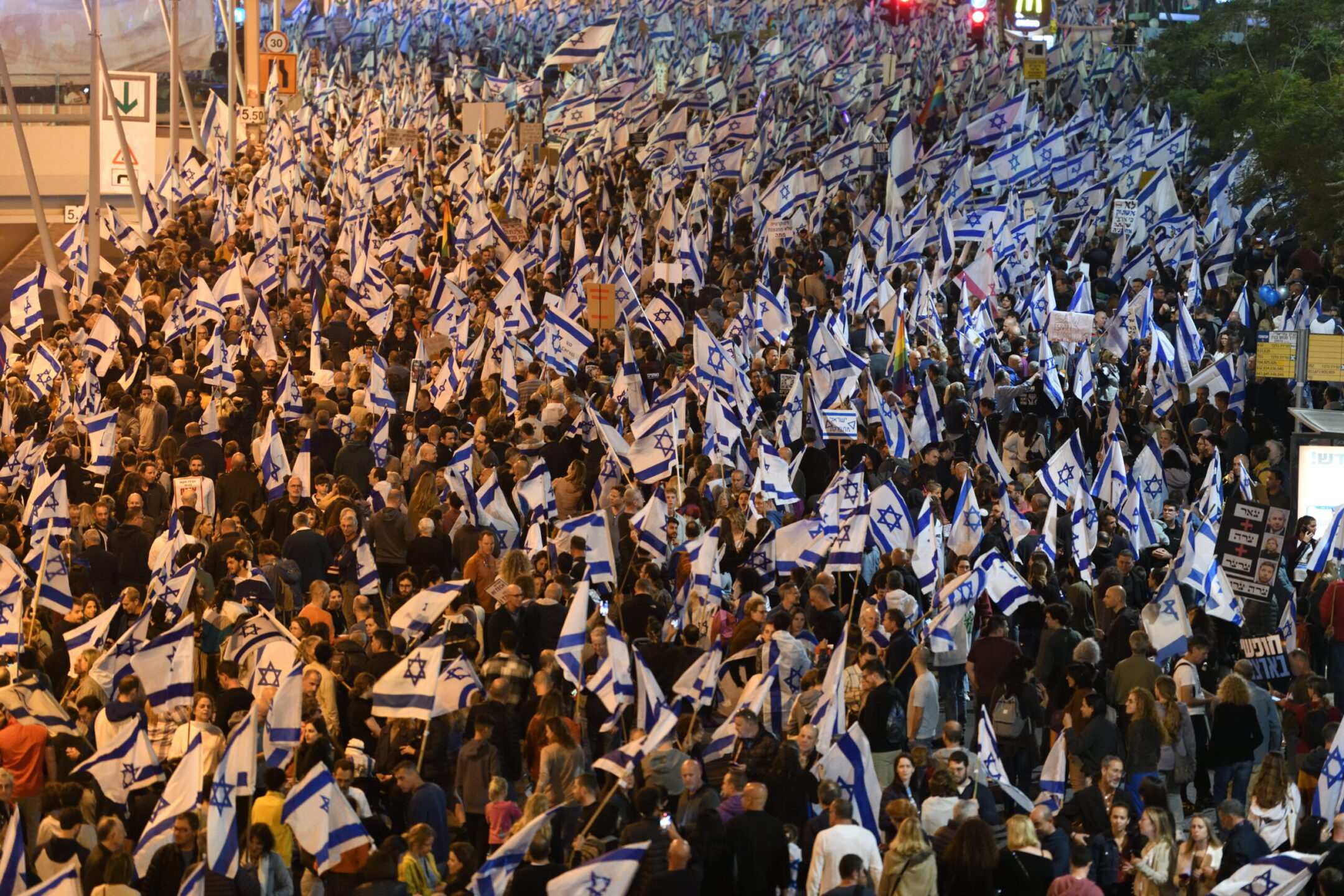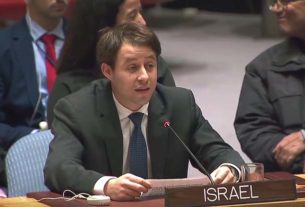(JTA) — Hundreds of thousands of Israelis took to the streets to oppose the government’s planned judicial reform on Saturday night, but within hours Prime Minister Benjamin Netanyahu’s coalition advanced the legislation through the Knesset.
Protests against the reforms extended to areas of Israel’s establishment where political protest was once unthinkable, including among combat pilots as well as staff for the national airline, El Al.
The government is opening bids for other airlines to fly Netanyahu and his wife to Rome later this week after too few El Al employees signed up to work the trip. The airline denied that the worker shortage reflected a protest against the prime minister, who is scheduled to meet with Italy’s new right-wing leader, Giorgia Meloni.
But others are making clear that their refusal to show up to work represents a protest against Israel’s right-wing government, which is seeking to sap the judiciary of its power.
Thirty-seven of 40 combat pilots in the military reserves said they would skip the first day of a required week of training to “devote our time to discourse and thinking for the sake of democracy and the unity of the people, and therefore we will not report to reserve duty on this day, with the exception of operational activity,” according to a translation of the letter published by the Times of Israel. They would turn up as required for the rest of the week, they said.
Reserves pilots train multiple times a year, a regimen that is seen as critical to their effectiveness. Individual soldiers have refused to serve in the past, at times earning jail sentences, but a mass action by one of the military’s most elite units is unheard of. The squadron in this case was responsible for destroying a nascent nuclear reactor in Syria in 2007.
Among the dozens of appeals against the reforms, a standout came from 10 of the troops who joined his older brother, Yonatan, in rescuing hostages held on a plane in Entebbe, Uganda, in 1976. Yonatan was killed during the raid, which Israelis view as an iconic moment in their history and which is seen as emblematic of Israel’s willingness to go to extreme lengths to rescue Jews in peril. Benjamin Netanyahu has since made his brother his lodestar, and frequently mentions him in public remarks.
The 10 veterans were especially offended by Netanyahu’s likening of the protesters — whom they have joined — to the settlers who rioted in a West Bank village last week, burning houses and cars and injuring dozens. One Palestinian was killed amid the riots.
“We did the impossible with our brothers in arms,” said the letter, posted Saturday on social media. “And you and your cohort are doing everything you can to undermine motivation and to crack up Israeli society.”
The combat pilots and Entebbe veterans joined a growing protest movement against legislation that would allow a simple majority of 61 Knesset members to overrule the Supreme Court, and that would constrain the court in other ways.
On Sunday, the Knesset’s Constitution, Law and Justice Committee advanced the legislation, which has already passed the full Knesset on the first of three required votes to become law.
The opposition sees the reforms as gutting the independence of the judiciary, which has been a bulwark against the erosion of the rights of women, non-Orthodox Jews, and minorities, including Arab and LGBTQ Israelis.
Netanyahu has said he is ready to negotiate on the judicial reforms, but the opposition wants him to first stop the legislative process; coalition lawmakers have said they want to pass the laws by Passover, at the beginning of April.
Organizers said 400,000 people turned out for the ninth weekly Saturday night protest, with more than 150,000 in Tel Aviv alone.
In his remarks opening his weekly Cabinet meeting on Sunday, Netanyahu said he understood “that many of the protesters are loyal citizens, most of whom don’t understand the details of the reform at all.”
The protests had been peaceful until Thursday, when mounted police used water cannons against crowds in Tel Aviv gathered for a “Day of Disruption.” Another “Day of Disruption” is planned for this week.
How far that disruption extends within the armed forces remains to be seen. Opposition leaders urged reservists to show up as required. Benny Gantz, who leads the Blue and White party and who was the defense minister until December, called on reservists and regular troops “not to give in to refusal to serve, although you are in pain.”
In a letter leaked Friday, Tomer Bar, the general who commands the Air Force, appealed to reservists not to miss call-ups, while saying, “I am aware of and sensitive to the difficulties and challenges we are all facing these days.”
Netanyahu on Sunday tweeted a photograph of himself when he was young and serving in a commando unit. “When we are called to reserves, we always turn up,” he wrote.
“We did the impossible with our brothers in arms,” said the letter, posted Saturday on social media. “And you and your cohort are doing everything you can to undermine motivation and to crack up Israeli society.




